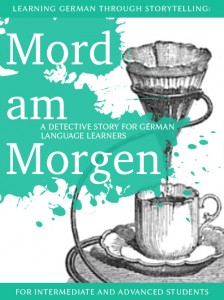Have you ever wondered how many German dialects there are? Between the breezy Northern Platt and the homely Southern Boarisch, it’s actually quite difficult to come up with a definite number. Theoretically there are as many dialects as there are German speakers.
Especially when you travel farther away from Europe, it’s remarkable how local communities over time created their very own dialects which preserved certain parts of Standard German (dialects) but also branched off in unique ways. Many of you may have heard about Pennsylvania German, for example, but did you know that the Lone Star State has its own German dialect too?
Transcript (via YouTube):
[Music]
in the 1840s came from all areas across
germany most of my grandparents came to
fredericksburg in the 1840s so
my great-great-grandparents arrived in
indianola
came to new braunfels then into
fredericksburg and settled here
so as they came into fredericksburg
settled down
married the dialects merged with each
other
so our our german language here has a
dialect that is quite different from any
other regions in the united states
perhaps well the this review against an
album i did grow up speaking german and
i spoke only german until
i started school i learned the home life
language working in the garden alongside
mother and daddy
that was in the german language going
and staying with grandparents
great grandparents getting the eggs with
opa
and doing some sewing with oma i learned
about helping my mother
with the children so that was done in
the german language
i discovered the texas german dialect in
the summer of 2001
then i stopped in fredericksburg i had
lunch i heard these elderly
gentlemen speak an interesting variety
of german that i’ve never heard before
so i went up to them and i asked where
are you from and what are you doing here
and they looked at me in disbelief and
they said what do you mean
we’ve always been here and we speak
texas german and we’re fifth generation
texas germans and
that was the first time that i had not
only heard texas german spoken but that
i also knew that it existed
my first experience in learning that the
german language in fredericksburg
was quite different than the language in
germany
was in 1996
when we met with the people from
montebarr
here and in germany there were words
that i used that would bring these
smiles to people’s faces and they would
say
oh now i haven’t heard that word used
since my grandmother passed away
so at the end after three to four to
five generations
the dialect that you get sounds a little
bit like all the input dialects from 100
or 150 years ago
but it’s a unique dialect so texas
german is different
in that it’s a mix of different dialects
and then texas german is also
interesting because it’s been in contact
with english for such a long time so you
have a long list of hundreds of words
that have been borrowed
from english into texas german one of
the obvious ones
is words like the stink cuts
which literally means the stinking cat
they saw this little
fluffy thing that was walking around and
looked like a cat but it really
had a bad smell so they literally called
it stinking cat
it’s something very uniquely texan
on the kind of organ so the
habs don’t sign a frow on the humans and
by fools texas german
is really hard to find these days if you
go to
nine pin bowling alleys if you go to
particular types of social clubs like
dancing club shooting clubs
car playing clubs specifically in areas
like
new brownfields or in fredericksburg or
in schoenberg or freiburg
or in comfort you can go to feed stores
you can go to hardware stores
and if you’re lucky you run into people
who speak texas german with you
–


